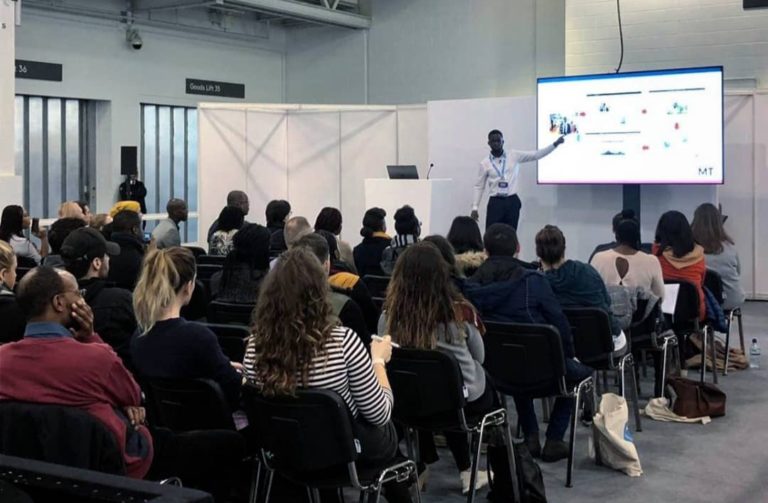The Power of Proper Facilitation
Google defines a facilitator as “a person or thing that makes an action or process easy or easier.” This is obviously fitting and suggests that a facilitator needs to be skilled in suggest traits in or to demonstrate this. Facilitation is required in many places and is somewhat underrated in a lot of entrepreneurial and corporate environments, however, the more facilitators you can find, the better your communication will be as an organization. Anyone can be a facilitator, but not everyone can do it well. It takes a measured level of empathy, social and emotional intelligence, understanding and knowledge of group and topics discussed. Here I will highlight what is required to become a good facilitator.
Have a clear agenda
When you have a clear agenda you are able to capture the key objectives that a group is aiming to tackle and get desired results from. A clear agenda highlights the thoughts of the group in a structured way and potentially gets you closer to actions that can be implemented by the group. It also allows for the right and appropriate discussions that members need to partake in for progress and critical thinking.
Be informed
When the facilitator is aware of the context of a topic, they are much better at facilitating a group. This is because they will have the confidence to ask the right questions to invoke thoughts that may lead members towards a desired collaborative outcome. This would suggest that a facilitator may know beforehand what desired outcomes are needed by the group, but cannot impose this upon members as they may come up with this themselves or highlight other suggestions or areas of concern. The more you know about a topic the better the facilitator you will be.
Know the desired outcome
This echoes the last point and this is being clear about the group’s vision and mission. Having this at the back of your mind constantly makes it easier to align your communication efforts to a towards this vision and mission.

Understand your group
A good facilitator knows their members very well, or well enough to know how they respond to different levels. This requires you to have great self-awareness and self-management, as well as social awareness and relationship management; key attributes of emotional intelligence. Recognise what behavioural cues people give in different situations, observe how people express themselves. These verbal and non-verbal forms of communication need to be taken into consideration, but in addition to this, you need to be “in the mind” of each member. Spending time with each member is critical to developing that understanding, as well as spending time with the group in a less formal setting. In the book The Crowd, by Gustave le Bon, he makes it very clear that people act differently in groups, as opposed to by themselves. I know this for a fact, I have friends who do this everytime we meet in a group. Some people show off, others may quieten down, and some may just act completely out of the ordinary. It is your job to recognize this and act according to it.
Ask the right questions
Before I started writing about anything business and personal development related, I have always said asking the right questions will get you the right answers, and in turn, determine the quality of your life. The same applies to facilitation in a group. When you understand your members and you understand the vision, it is much easier to steer the group towards a collective desired outcome, understanding, accountability and actions. You may want to write down questions prior to a meeting to prime your mind, however inevitably you will spontaneously have questions is mind which is a great and normal thing to do.
Observe verbal and non-verbal communications
This echoes understanding your group. I cannot stress it enough as a good facilitator usually has great emotional intelligence skills and acts on the information he or she receives. If someone is constantly tutting, or rolling their eyes, there is a problem; If someone is quiet in the group and talkative outside it, it highlights a disconnect; if someone is always referring back to an issue or topic, it displays a need for attention. Be aware and take appropriate action in a non-intrusive way.

Manage characters
There are various types of people within a group and it either makes the group easy or hard to manage. There may be someone who “knows it all” and doesn’t allow for genuine discussion to flow in the group, which for some may be intimidating. There are others who say nothing, and it is important for them to speak up for their views to be heard. There may be others who are purposely disruptive in the form of non-verbal or verbal forms of communication. This last point may even come in the form of mocking a person, singling out a person, or quite frankly social bullying. As a facilitator nip it in the bud immediately by addressing the issue indirectly via questions directed at the person, reminding the group of the terms of reference or speaking to the individual(s) in private to prevent it from happening again. If characters do get out of hand, it is a decision you need to make as facilitator whether you should remove them from the group and its activities.
Encourage participation
If you’re part of a group you must see it as a duty to participate. You’re not in the group for information’s sake only, you are also there to make a valuable contribution. With that in mind, make a contribution and focus on providing value with the position of expertise you have. If you feel you have no expertise to offer, then ask questions to gain understanding. You’ll be surprised how effective this is, and how many people did not understand a concept in a group. A lot of people love to pretend that they understand a concept. As a facilitator, you should encourage people to take part. This requires you to inspire and motivate a team, imbuing them with confidence and belief in their abilities.
Intervene and summarise understanding
Active listening is a fundamental and key skill that anyone should have. You need to be able to listen well and properly, allowing the person to express their views fully before saying anything. Non-verbal cues, effective questions and summarising information is important for drawing understanding from a group. The better you do this, the more comfortable a group will feel. This requires patience, even if you know where a person is headed with their statement.

Capture information
People always say to me “You’re so organized you have notes for everything,” even though that may appear to be true there is no point attending a meeting with no minutes. It is stupid. Paraphrasing Jim Rohn, it is said that we should never rely on our brain to remember anything. The same goes for group meetings. Get into the habit of capturing minutes. You can do this in two ways.
- As the facilitator capture the minutes yourself
- Get someone who understands how to capture minutes well as well as understands the basic objectives and topic shared by the group regularly
Once you have these conditions you’ll capture the right information, which can be referred to whenever in order to restore forgotten or disputed information.
Develop actions and accountability
And lastly, make sure you have actions recorded per item with levels of accountability in place. Actions include the following:
- A clear task of what is required
- A task category
- When the task was set
- The deadline for the task
- Who the task was assigned to
This can be developed into an action log which in essence can be reviewed when necessary. Accountability can come in the form of a group, or member of the group that checks to see if actions are completed between group meetings. In addition scheduling tasks is a great way to stay accountable. Never shy away from addressing the elephant in the room and making sure there is appropriate action to get rid of it.
I hope this has given you enough food for thought to become a great facilitator for your organizations, business and projects! Re-read this before you enter a group meeting so that you can be in confident in your ability to facilitate or take part!








One Comment
Comments are closed.